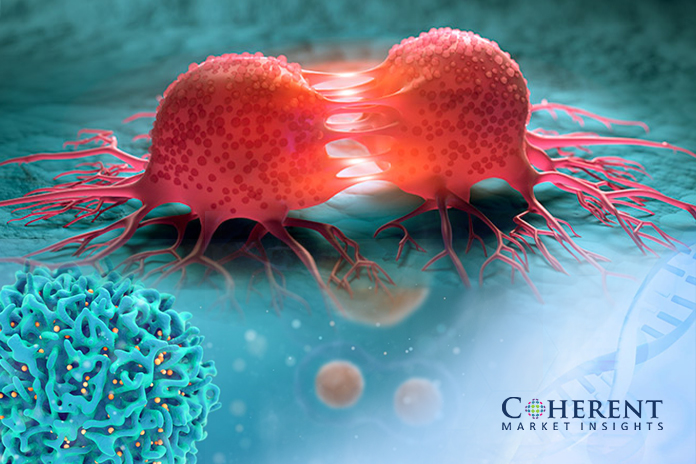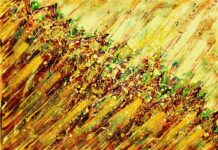Chimeric antigen receptor T (CAR-T) cells is used in treatment and management of cancers such as diffuse large B-cell lymphoma, follicular lymphoma, mantle cell lymphoma, multiple myeloma, and B-cell acute lymphoblastic leukemia. Various studies have reported 82% success rate to the therapy.
Market Dynamics
Approval and launch of new therapies is expected to propel growth of the global CAR-T cell therapy market over the forecast period. For instance, in August 2021, IASO Biotherapeutics, a clinical-stage biopharmaceutical company, received clearance from China’s National Medical Products Administration (NMPA) for two Initial New Drug applications for CT120, the company’s in-house developed fully human CD19/CD22 dual-targeted CAR-T cell therapy for the treatment of non-Hodgkin lymphoma with CD19/CD22-positive relapsed/refractory B-cell type.
Moreover, increasing availability of CAR-T cell therapy is also expected to aid in growth of the market. For instance, in August 2021, The Myeloma Center at the Winthrop P. Rockefeller Cancer Institute at the University of Arkansas for Medical Sciences announced to offer CAR-T cell therapy for the treatment for myeloma.
CAR-T cell therapy is costly and the expanses range from US$ 373,000 to US$ 419,000. It also has some side effects such as cytokine release syndrome with flu-like symptoms. In such scenario public funding is expected to offer lucrative growth opportunities for players in the global CAR-T cell therapy market. For instance, in August 2021, Kite, a Gilead company, announced that Yescarta (axicabtagene ciloleucel), its CAR-T cell therapy, is now publicly funded and available to patients in Australia.
Major players operating in the global CAR-T cell therapy market are focused on approval and launch of new products to expand their product portfolio. For instance, in March 2021, Bristol Myers Squibb and bluebird bio, Inc. received the U.S. Food and Drug Administration approval for Abecma (idecabtagene vicleucel; ide-cel), a BCMA-directed CAR-T cell therapy, for the treatment of multiple myeloma.
Key Takeaways
– Approval and launch of new therapies is expected to propel growth of the global CAR-T cell therapy market over the forecast period. For instance, in June 2021, Fosun Kite Biotechnology, a joint venture between Shanghai Fosun Pharmaceutical (Group) Co., Ltd and Kite Pharma, Inc., received NMPA approval for its autologous CD19-directed CAR-T cell therapy Axicabtagene Ciloleucel (FKC876) (axicabtagene ciloleucel) for the treatment of adult patients with relapsed or refractory large B-cell lymphoma.
– Major players operating in the global CAR-T cell therapy market are focused on approval and launch of new products to expand their product portfolio. For instance, in August 2021, Allogene Therapeutics, Inc. received the U.S. Food and Drug Administration’s orphan-drug designation to ALLO-715, an AlloCAR T therapy targeting B-cell maturation antigen, for the treatment of multiple myeloma.
– Major players operating in the global CAR-T cell therapy market include, Novartis International AG, Kite Pharma, Inc. (Gilead Sciences, Inc.), Bristol Myers Squibb, Juno Therapeutics (Celgene Corporation), Bluebird Bio, Inc. (Celgene Corporation), Sorrento Therapeutics Inc., Allogene Therapeutics, Mustang Bio, Inc., IASO Biotherapeutics, Aurora Biopharma Inc., Legend Biotech (Genscript Biotech Corporation), Fosun Kite Biotechnology, Pfizer, Inc., CARsgen Therapeutics, Ltd., and others.






















